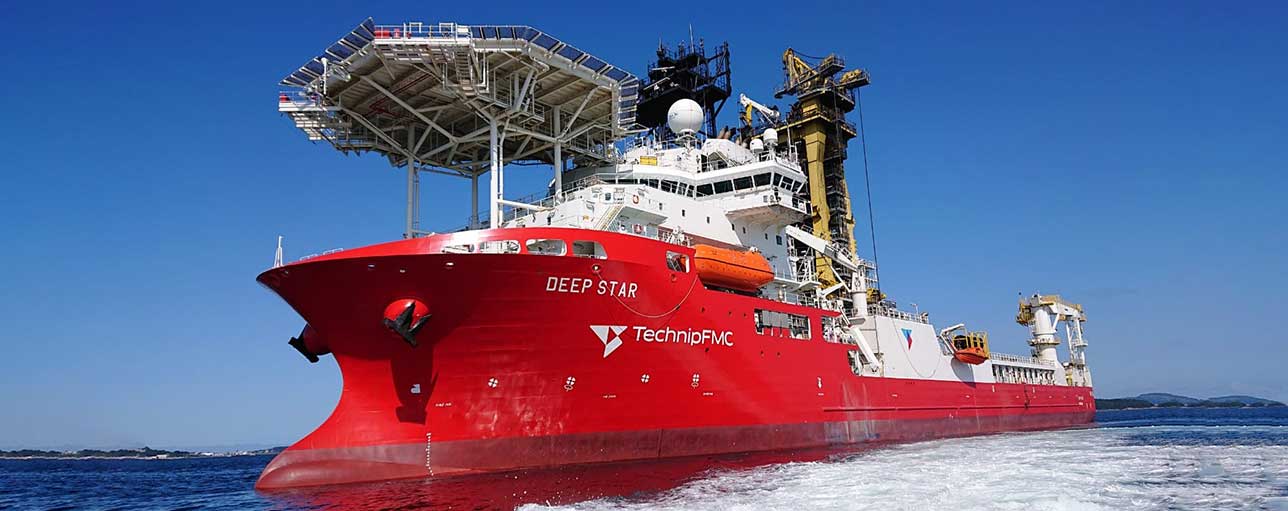DNV has awarded vessel owner, TechnipFMC, its first class notation for Data Driven Verification (DDV) of Dynamic Positioning (DP) systems. In addition, Kongsberg Maritime’s Dynamic Positioning Digital Survey (DPDS) has been awarded an Approval in Principle (AiP) under the DDV notation and was the software system used in the data driven verification process for the DP systems that have been tested onboard Deep Star.

Dynamic Positioning systems are used by offshore vessels for accurate maneuvering, for maintaining a fixed position or for track keeping (pipe/cable laying). These systems require classification which is normally performed via onboard inspections where the surveyor witnesses tests of the DP system and collects the relevant data for assessment by the classification society.
“We are proud to be the first company in the world to have been awarded the DDV Class notation for Dynamic Positioning systems,” said David Jousset, Vice President OneFleet at TechnipFMC. “With this notation, the TechnipFMC vessel Deep Star can perform annual DP trials remotely with increased flexibility in planning, improved consistency, and increased transparent data sharing. This is a significant step in leveraging new capabilities in the digital space and bringing added value to our clients through greater efficiency and improved fleet utilization.” TechnipFMC is looking to scale this approach to its entire fleet in the coming months.
“It has been a long journey coming to this point in the DPDS rollout, and we are glad to have such a forward thinking vessel owner and class association with us on the process," says Erik Korssjøen Product Director Digital Applications in Kongsberg Maritime. "This is definitely a big step towards transforming the industry in a real digitalized way. We are glad vessel owners are experiencing the considerable benefits of using DPDS.”
With the DDV class notation the testing of the DP system can now be performed on board more conveniently with the support of the crew and without the need for a surveyor to physically attend. The use of a digital system enables the crew to run test activities and automatically harvest secure and reliable data on the vessel’s behavior. This data can then be verified by the surveyor using a digital playback application.
“Innovative digital systems are propelling the industry forward, enabling more efficient processes and deeper insights,” says Arnstein Eknes, Segment Director - Special Ships, DNV Maritime. “At DNV we are very pleased to be working in partnership with TechnipFMC and Kongsberg Maritime to show the industry how we can begin to realize these gains. The lessons we learn from developing and using these new systems are making class processes smoother, giving greater flexibility to owners, operators and most importantly crews. While at the same time, we are building data sets that are reliable and unlock value across the industry.”
The DDV class notation sets the requirements for the gathering, treatment, and delivery of collected data to ensure the quality of this data for use in a class assessment. This means that for the specified systems, the verified data can be used in the certification and classification of those systems in maritime and offshore vessels.
The notation enables secure and tamper-free data harvesting to be performed by the crew without surveyors being present onboard. Compared to traditional paper-based test reports, the body of evidence represents an accurate and detailed documentation of test activities, which can be revisited for as long as the data is stored. The notation covers several different verification methods, including self-verifying systems and digital twins.
An Approval in Principle (AiP) is an independent assessment of a concept within an agreed framework, confirming that the design is feasible, and no significant obstacles exist to prevent the concept from being realized.